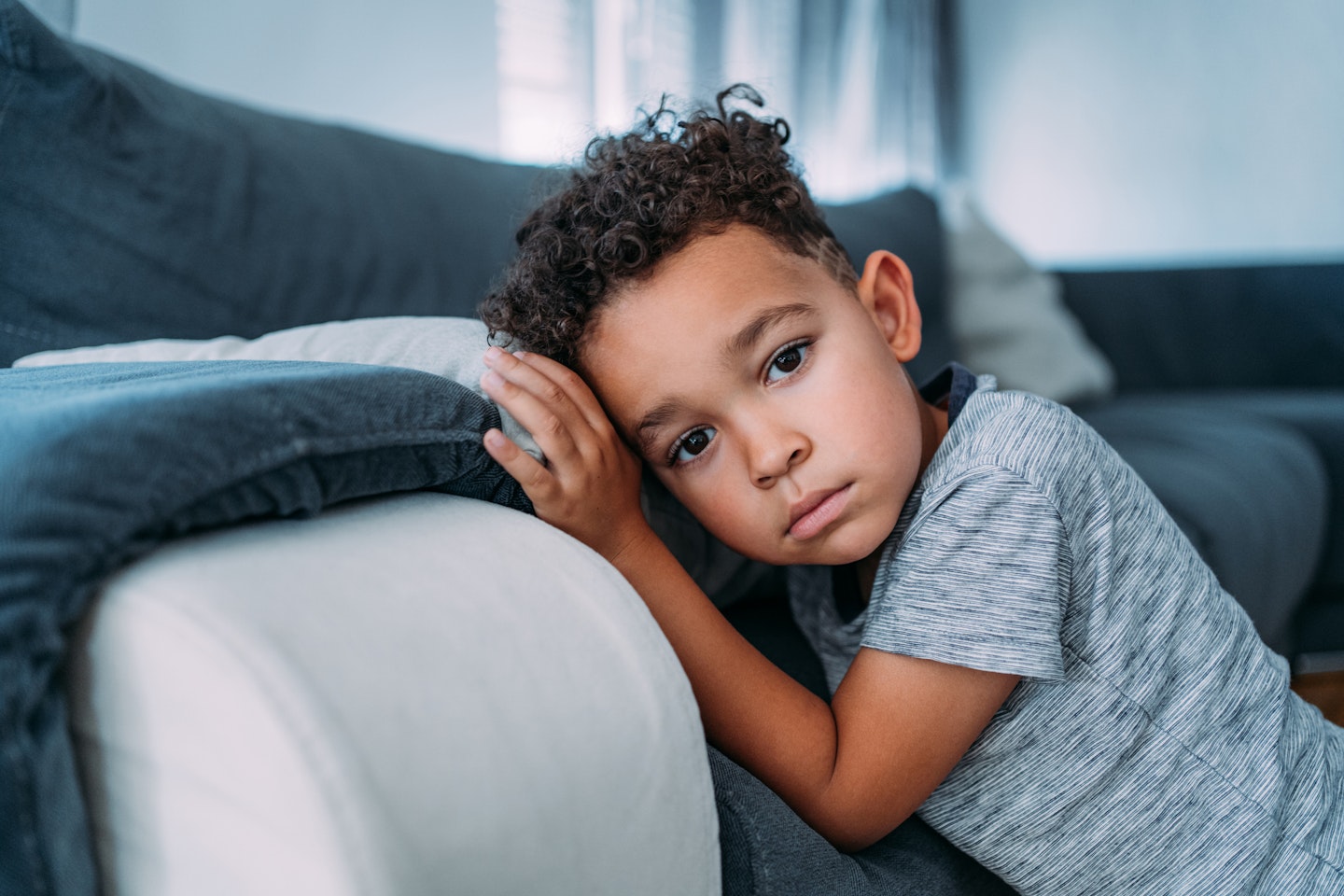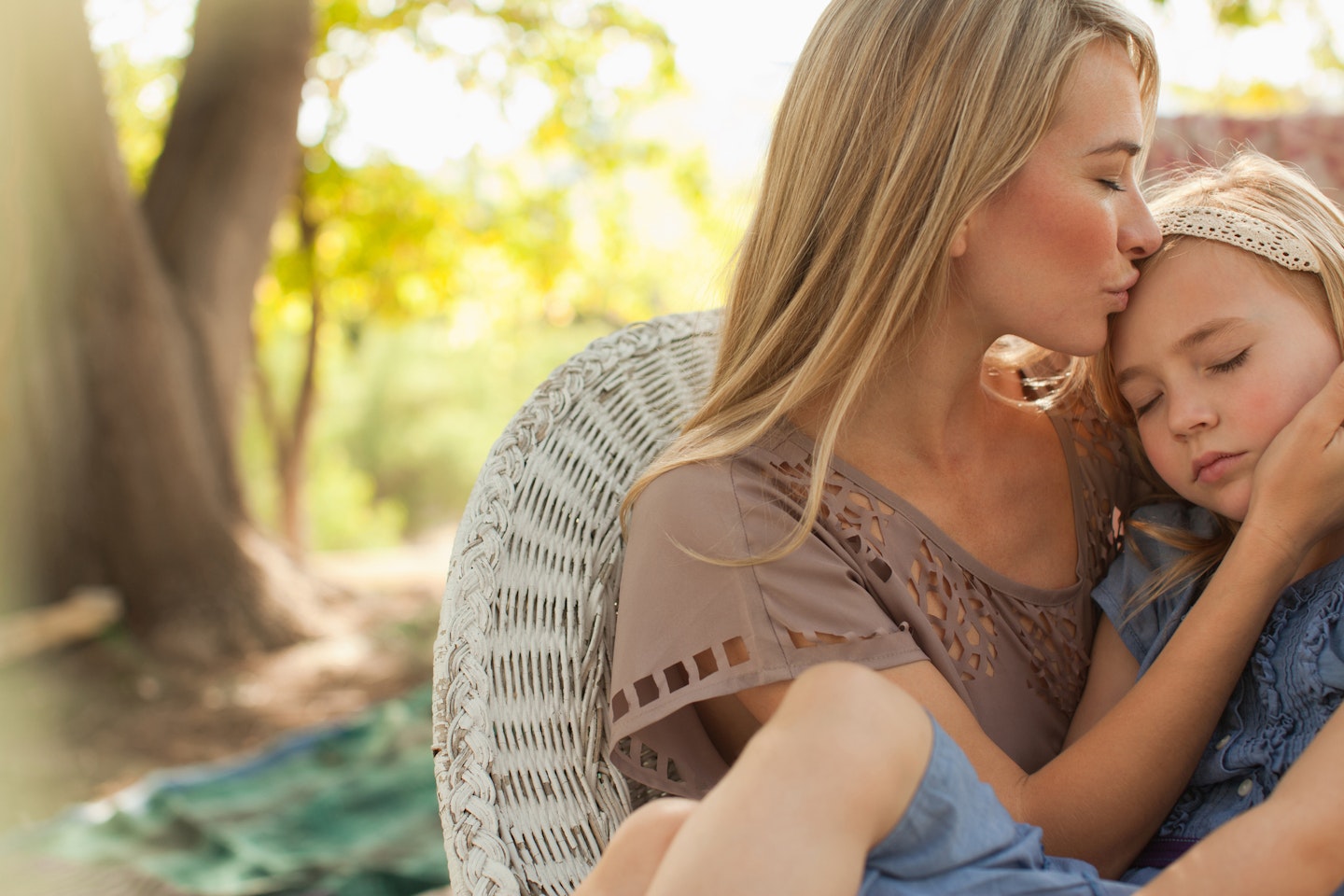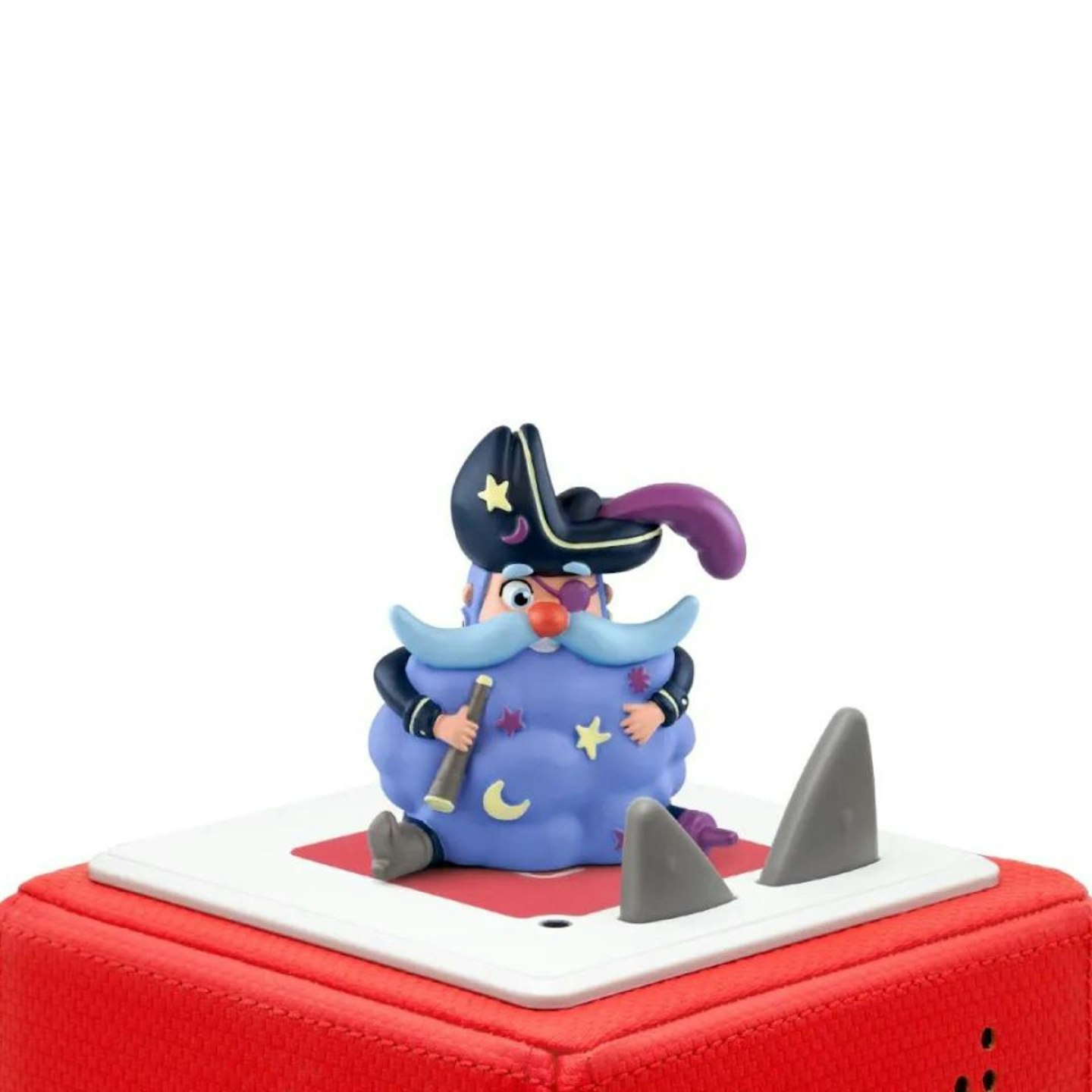Childhood anxiety isn't uncommon, unfortunately. A 2020 NHS survey found that one in six young people in England (aged 5 to 16) experienced a mental health problem in 2020, up from one in nine in 2017. The Mental Health of Children and Young People in England 2023 report, published last November by NHS England, found that 20.3% of eight to 16-year-olds had a probable mental disorder in 2023.
It shouldn't be surprising that more children feeling anxious today than even just a few years ago, with everything from the COVID-19 pandemic to social media playing their parts, plus the pressure of school, exams and world events. As a parent, it can be incredibly difficult to navigate - we all want the best for our children. We spend endless evenings spinning these intricate plans in our minds, all with the goal of making well-rounded human beings who are fundamentally happy. So, when our children struggle with overwhelming emotions, the default response is often to panic.
Anxiety is the body's natural response to stress or uncertainty, often characterised by feelings of worry, nervousness, or fear. While excessive anxiety can be debilitating, in moderation, it can actually be helpful, alerting us to potential threats and prompting us to take action to protect ourselves. But as a parent, it can be incredibly tough to witness.

Society has become increasingly aware of the significance of well-being and mental health. Nowadays, every school has a dedicated mental health professional who plays an essential role in the school team. And while it's crucial for your child to receive support at school, there are also steps you can take at home.
Thankfully, resources are available for parents looking to support their children at home. We spoke to Anxiety Specialist, Cai Graham, for some practical advice. Cai has blended her 20+ years of motherhood with her background as a therapist and coach to create an online education program, book and retreats to help families understand how to relate and understand each other. Plus, keep reading for our tried-and-tested kids' anxiety products that aim to ease the symptoms of anxiety.
What is childhood anxiety?
Cai explains, 'Childhood anxiety is more than just worries; it's like a shadow that follows your child everywhere. It's the knot in their stomach before school, the fear of social situations, and the sleepless nights spent overthinking.'
As parents, we usually respond to these situations by trying to shower our little ones in love, and whilst that is important, it often doesn't resolve the issues. 'You want to give them a big hug to ease their burden, but anxiety doesn't always respond to these acts of parental love,' says Cai.
'Childhood anxiety isn't just a phase; it's a real, overwhelming challenge, yet there’s hope. With patience, understanding, and the right support, you can help your child navigate through the maze of anxiety and emerge stronger on the other side.'
What are the symptoms of childhood anxiety?
It’s important to know that childhood anxiety can show up in different ways, as each child, like each adult, is different. However, here are the signs that Cai recommends you watch out for, echoed by the NHS:
• Excessive worrying
• Frequent stomachaches or headaches
• Trouble sleeping
• Irritability
• Body-focused repetitive behaviours - hair pulling, skin picking, nail biting, nose picking, and lip or cheek biting.
• Avoiding certain situations
Some kids might also be clingy or seek constant reassurance. If you notice any of these signs persisting and affecting your child's daily life, it might be worth digging a bit deeper, and, if you are concerned, visit your local GP.
What causes childhood anxiety?
At times, the reasons may not be obvious, but gaining insight into these factors can enable you to provide better support for your child during challenging periods. 'You might wonder what causes anxiety in children. It can be a mix of things like genetics, brain chemistry, and life experiences. Stressful events like moving, family conflicts, or starting school can trigger anxiety, too,' says Cai.
How can I help my child cope with anxiety?
Encouraging a healthy lifestyle through regular exercise, balanced nutrition, and adequate sleep can bolster your child's overall well-being and help build resilience against anxiety. Additionally, leading by example is key: if your child observes you practising healthy stress-management techniques like deep breathing or mindfulness, they're more likely to adopt these skills themselves.
'Importantly, kids need to have their fears and worries validated. Listen to them and acknowledge what they are thinking and feeling. Anxiety is perfectly normal - and often, when kids feel that they are not “broken”, they are able to start managing their anxieties a bit better,' says Cami.

How common is childhood anxiety?
Ten per cent of children and young people (aged 5 to 16 years) have a clinically diagnosable mental problem, yet 70 per cent of children and adolescents who experience mental health problems have not had appropriate interventions at a sufficiently early age.
These statistics emphasise the importance of addressing the issue early on and giving your child the support and resources they need to thrive mentally and emotionally.
Whether your child is currently experiencing these emotions or not, creating an environment where they feel comfortable expressing themselves freely is crucial for their personal growth and development.
And whilst preventing childhood anxiety entirely might not be possible, there are steps parents can take to reduce its likelihood.
When should I seek help for my child's anxiety?
'I always say, ‘the sooner the better’. Left unchecked, anxiety can quickly snowball into something far more serious,' advises Cai.
It's important to seek help if your child's anxiety is significantly impacting their daily life, relationships, or well-being. Professional support can provide valuable strategies and resources to manage and alleviate their anxiety effectively.
Where to get support
Firstly, visit your family GP. They can provide information and advice and discuss therapy and medication if needed. Depending on your child's needs, they can also refer them to a mental health specialist or to Child and Adolescent Mental Health Services (CAMHs).
Parents and carers can get help and advice about children's mental health from Young Minds' free parent helpline on 0808 802 5544, from Monday to Friday, 9.30am to 4pm.
The best products to help with childhood anxiety, tried and tested:
While anxiety is troubling, there are products out there that are designed to help. From using weighted blankets and essential oils to introducing mindfulness toys and stress balls, these tools can all help your child feel supported and encourage them to open up about their feelings. The art of play can be a useful tool to help children work through their feelings or distract them if they're feeling overwhelmed. We tested a selection of kids' anxiety products, and here's what we found:
 Credit: Etsy
Credit: Etsy www.etsy.com
This handmade fidget ring was our favourite product for helping children deal with anxiety. It's discreet and a fantastic option for children to wear daily without feeling self-conscious. It is easy to use and can be a welcome distraction when your child is overwhelmed.
Our only grumble is the sizing. The smallest size available was still slightly too big. It is a US 4 (which should fit a seven-year-old), and we wish it came in an even smaller size.
It comes in three different finishes: gold, silver and black. It can even be worn in water.
Pros
- Discreet design
- Effective distraction
- Three colour finishes
- Suits all children
Cons
- The sizing is slightly too big for young children
 Credit: Amazon
Credit: AmazonFor some children, hair pulling or skin picking may serve as a coping mechanism to alleviate feelings of anxiety, stress, or discomfort. It can be a tough habit for children to shake; cue: Fluffie Stuffiez.
Children can pull the outer layer of fluff from the Fluffie Stuffiez to reveal a surprise transforming character underneath.
On average, it takes approximately 30-45 minutes to pull a small plush to reveal the surprise character underneath and around 60-90 minutes for an oversized plush.
The best part is that all of the bits of fluff can be neatly collected in a bag to make a second plush toy.
Pros
- It provides a healthy outlet for the urge to pick or pull
- Engaging task
- It can help alleviate stress and anxiety
- Teaches healthy coping skills
- Mystery toy element
Cons
- Some parents commented that it created a lot of mess
 Credit: Disney
Credit: Disney www.disneystore.co.uk
Lilo & Stitch are having a moment in the spotlight again, with many primary-age school children loving the iconic duo. The movie resonates with many because both Lilo and Stitch are lost in their own ways, trying to navigate a confusing world - like so many of us.
This weighted blanket is the perfect marriage between your child's interests and easing their anxiety.
The gentle pressure from the weighted blanket can calm the nervous system, promoting relaxation and reducing feelings of stress and anxiety.
Weighted blankets provide deep pressure stimulation, which has been shown to increase serotonin levels and decrease cortisol levels in the body, helping regulate mood and promote well-being.
The weight and pressure of the blanket can provide a sense of security and aid relaxation so your child can sleep better or relax on the sofa.
Pros
- Popular Lilo and Stitch design
- Can help improve sleep quality
- Deep pressure stimulation
- Machine washable
Cons
- It may not be suitable for all children (a weighted blanket should weigh 10 per cent of your child's body weight)
 Credit: Glow Dreaming
Credit: Glow Dreamingglowdreaming.co.uk
Like adults, children can experience stress and worry about various aspects of their lives. As many of us know, these feelings often become more pronounced at bedtime when fewer distractions make it difficult to fall asleep.
The gentle lighting, soothing sounds, and aromatherapy offered by Glow Sleep Easy can create a calming atmosphere in the child's bedroom, promoting relaxation and reducing anxiety levels.
We like that through the mobile phone app, you can schedule the light to go from red to green to notify your little one when they can get out of bed.
Establishing a bedtime routine using Glow Sleep Easy can provide structure and predictability for children, which can be particularly comforting for those experiencing anxiety. Consistent sleep patterns can help regulate emotions and promote a sense of security.
Pros
- Creates a comforting environment
- Helps establish routine
- Easy-to-use app
- Promotes a healthy sleep routine
Cons
- It works best with a bedside table
 Credit: Amazon
Credit: AmazonDeep breathing is one of the most effective ways of calming anxiety. PAWZ, the calming pup, has an auto-adjusting light that guides children through deep breathing patterns. This is especially helpful for younger children as the visual aid will enable them to know when to take a deep breath and when to exhale. We love that this also works as a nightlight for bedtime.
Pros
- Promotes deep breathing
- Night light function can be set for 5, 15, or 30 minutes
- USB chargeable
- Helpful instructions
Cons
- It may not be as appealing to older children due to the design
 Credit: Amazon
Credit: AmazonYou only have to spend 10 minutes on TikTok to learn that positive affirmations are a great way to kick-start your day. Affirmations help children develop a positive self-image and believe in their abilities.
This chart can be hung in your bathroom and integrated into your child's morning routine. The mirror encourages your little ones to look at themselves as they say their affirmations. We found this works best after teeth brushing, and it's a great way to start their (and your) day positively.
Pros
- Quality materials
- It is a great way to boost confidence
- Simple yet effective
- Easy to clean
Cons
- The mirror could be a bit bigger
 Credit: Etsy
Credit: Etsy www.etsy.com
Another one of our favourite products is this wearable bracelet. Like the ring, children can use it as a discreet distraction when they feel anxious, nervous (or even happy). They can rub the moving beads on their wrists for comfort. We especially appreciate that it comes in various sizes - it fits this writer's four-year-old - who loves wearing it.
Pros
- Discreet fidget distraction
- Three size options
- Handmade
- Small UK business
- All orders come with a gift bag and a stretch figure
Cons
- Colours may vary
 Credit: Amazon
Credit: AmazonSometimes, when your child feels overwhelmed with emotions, finding a quiet corner to calm down can be incredibly helpful. Mindful Mazes by Learning Resources is designed to teach children self-soothing techniques while offering a tangible tool to guide them through breathing exercises and relaxation. Despite our initial scepticism, we found these mazes to be remarkably effective for children of all ages.
Pros
- Great for practicing breathing and mindfulness techniques
- Develop hand-eye coordination
- Six mazes
- Durable high-quality materials
Cons
- Limited shelf life (some children may become bored of the mazes over time)
 Credit: Argos
Credit: Argos www.argos.co.uk
Cai explains that screen time can make our children's anxiety worse. And whilst we are all probably aware that too much screen time can negatively impact our children, it can be really hard to live without it.
'Nowadays, our kids have greater access to mainstream media channels. They are often subjected to adult themes and toxic news that paint a very negative view of the world in which they live. (Knife crime, economic crisis, wars and terrorism, climate change, the list is never-ending). All of this is available 24/7, through their devices which reside in the palm of their hand,' she says.
StoryPhones are headphones for kids that play engaging audio content offline and offer an amazing standalone Bluetooth experience without needing screens. You do not need Wi-Fi (after the initial set-up), so it can be taken out to busy social events where your child may become overwhelmed.
Pros
- A growing library of titles available
- Screen-free audio stories
- No smartphone or internet needed after set-up
Cons
- Audio stories can be purchased at an extra cost
 Credit: Amazon
Credit: AmazonFrom the beautiful illustrations to the child-friendly language, we love the book, Ruby's Worry. Whether your child suffers from anxiety or shyness, this book is a brilliant way to explain big feelings to children. It is a fantastic way to de-brief before bed after an especially difficult day.
Pros
- Child-friendly way of explaining worry and anxiety
- Beautiful illustrations
- Diverse character
- Relatable story
- Part of a large series exploring emotions
Cons
- Each book in the series is sold separately
 Credit: Amazon
Credit: AmazonIf you want to get a better insight into how to help your child cope with their anxiety online, parents hail this as the go-to book. Parents can effectively reduce their children's anxiety by adjusting how they respond to their children's symptoms. Importantly, this approach does not involve imposing changes on the children's behaviour.
Pros
- Helpful hints and tips
- Written in a really helpful way
- Easy and relatable read
Cons
- Parents who purchased the audiobook wished they were able to download the worksheets.
12.
Cap'n Dreambeard
 Credit: Tonies
Credit: Toniestonies.com
We have been fans of Tonies since they launched in 2018. The audiobooks offer a great lifeline for tired parents who still want their little one to have a bedtime story. Nothing beats putting on a Tonie and snuggling in bed with your little bubba. So, we were excited about the Capn' Dreambeard Tonie, which the brand has collaborated with one of the leading meditation and sleep apps, Calm.
This Tonie promises stories of swashbuckling magic, mystical beards and sleepy adventures, all designed to help your little one have a peaceful night's rest and ease bedtime anxiety.
Pros
- Designed with the leading sleep and medication brand
- Child-friendly stories
- It can be set on a timer
- 45 minutes worth of stories
Cons
- Requires a Toniebox
 Credit: Amazon
Credit: Amazon Navigating school can be extremely difficult, from friendships and peer relationships to studying and exams. Bullying, meeting high expectations, and competing with their peers are common issues that can induce anxiety.
This pop fidget pencil case is a practical tool that can help children whilst they are at school. They can press the bubbles when they feel stressed or anxious and store all of their stationary to aid their learning. And our favourite feature is the detachable strap, which transforms it into a bag when they aren't in school.
Pros
- Two colour choices
- Practical
- Great for older children
- Pressable stress relief
- Resilient and waterproof
Cons
- Key Stage 1 children usually do not require pencil cases
 Credit: Coilef/Amazon
Credit: Coilef/Amazon Essential oil scents are believed to directly affect the limbic system, the part of the brain that controls emotions and behaviour. Therefore, inhaling these scents can influence emotional responses and potentially reduce feelings of anxiety.
This Colief Botanical bundle contains a unique blend of 100 per cent natural ingredients, including lavender and pine. Lavender has been used for centuries to relax and aid sleep, while pine brings a sense of freshness.
I found that the rub and patch really helped my little one get a good night's sleep, and when I put the 'nightmare deterrent' patches on, they slept peacefully.
Pros
- Contains natural ingredients
- Each patch is effective for up to eight hours
- It also works as a decongestant
- It can be used on babies, children and adults
Cons
- Patches are not reusable, and there are only six in the box
Meet the expert
International speaker, best-selling author and Podcaster Cai Graham is a Family Anxiety Support Specialist focusing on supporting teens and young adults.
Using her background as a Master Practitioner in Coaching and NLP & Timeline Therapy, together with her experience with ChildLine (the UK’s leading child counselling charity), Cai empowers her clients with the tools they need to gain control over their thoughts and emotions so that they may live happier, more confident lives.
Hannah Carroll is a Parenting, Lifestyle and Home Product writer for Grazia, specialising in product testing and reviews. With three children, Hannah loves testing the latest industry products on her own family.

